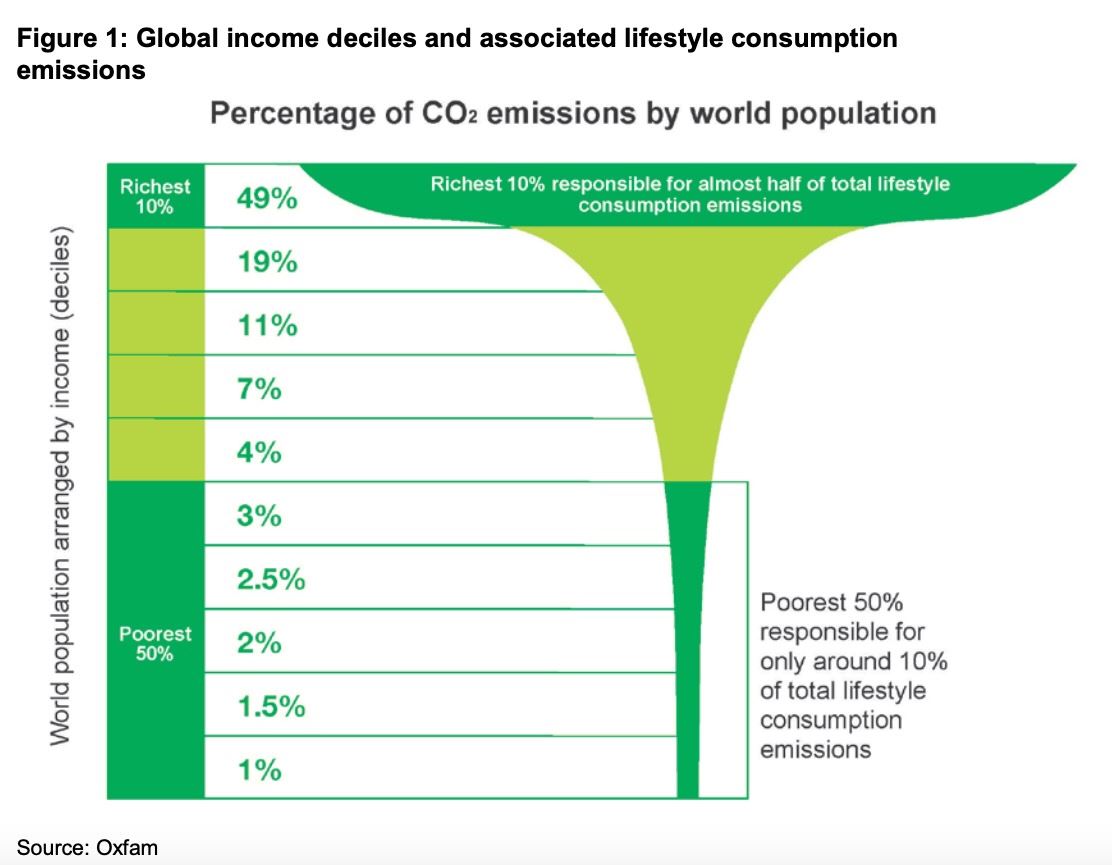.jpeg)
Ru Kenyon writes about the connection between his foraging practice in both everyday living and work as a foraging teacher with custodianship of The Earth in mind.
Earth Day has always felt an absurd ‘day’ to me, as if we don’t live on the Earth every day. Mostly an opportunity for a bit of posturing, presented in the frame of consumer capitalism. Arguably it does more harm than good
After decades of climate warnings, we’ve entered a time of consequences. In the UK farmers can’t plant crops in waterlogged fields after the wettest February on record. Just a taste of what will happen if we allow this to get much worse . We’ve been over 1.5C above the pre-industrial average temperature for the last 12 months. The temperature we’re supposed to stay under by 2050. Sea temperatures and sea ice show even more alarming departure into uncharted territory.
In 2015 the Oxfam paper titled ‘Extreme Carbon Inequality’ produced in my view the most important graph of our time:

Yes, the wealthiest 10% are responsible for half of ‘lifestyle emissions’. This staggering inequality is largely missing from the conversation. It means, when the world’s governments fly into COP climate conferences, it’s basically the 10%, bargaining with the 10%, over the emissions of the 10%. The sustainable carbon footprint has been calculated at around 1 tonne CO2 per person , ostensibly what we’re all aiming for by 2050. The bottom 50% show us it is entirely possible, now, to live on much lower emissions. Subsistence farmers I assume. Hunter gatherers wouldn’t even feature on the graph.
When politicians talk about a green transition, it’s mostly shifting the 10%’s consumption to clean energy. Two major problems – 1. It’s too late 2. It’s too resource intensive to replace the whole carbon economy. What’s actually needed is what climate scientist Kevin Anderson calls Equity . Rapid emissions reduction by reigning in the excess of the 10%.
However, that would contradict the economic paradigm of continuous growth. As many have pointed out though, infinite growth on a finite planet is impossible. There is now though an established movement for degrowth. Fundamentally - an overall reduction in energy consumption and materials throughput.
Overturning the economic paradigm would be nothing less than a revolution, of course. It feels unthinkable here but revolutions are a regular feature through history, and given the gathering crises it looks like that time is coming around again. My thesis, as far as foraging’s concerned, is: instituting radical change in society will take more than politics - a change of heart, is needed. Particularly for the 10%. Research has shown dialogue in fact doesn’t change people’s minds, but participation and a sense of belonging do. Foragers are perhaps well placed to open up space to allow people to come to terms with the crisis. Moreover, we sometimes find ourselves with peculiar access to wealthy people. Making explicit connection to the crisis and how we face it is where I mean to take my work.